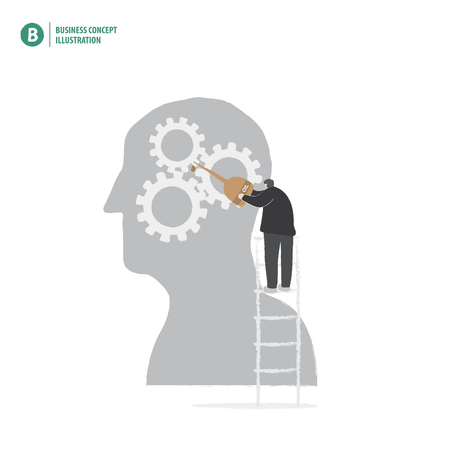Understanding Stress: A Scientific Overview
Stress is a term that’s often tossed around in daily conversations, but what does it truly mean from a scientific perspective? At its core, stress is the body’s natural response to challenges or demands, activating both biological and psychological processes designed to help us cope. Biologically, when we encounter a stressful situation—be it an impending work deadline or even something as British as being stuck in a never-ending queue—our bodies release hormones like cortisol and adrenaline. These chemicals prepare us for “fight or flight”, sharpening our focus and boosting energy levels temporarily.
However, not all stress is created equal. While acute stress can sometimes enhance performance, chronic stress takes a toll on emotional wellbeing, contributing to feelings of anxiety, irritability, and low mood. Psychologically, stress doesn’t just stem from external events; our individual thoughts, beliefs, and expectations play a crucial role in how we experience strain. For example, the British “stiff upper lip” approach might encourage people to bottle up their worries rather than address them openly, inadvertently increasing mental burden over time.
It’s important to debunk common myths about stress within the UK context. Contrary to popular belief, stress isn’t simply a sign of weakness or poor character; nor can it be overcome by “just getting on with it”. Instead, understanding the science behind stress reveals that it is a universal human experience—one that requires thoughtful management and self-compassion rather than stoicism alone.
2. Strain on the Mind: Recognising Emotional Responses
Mental strain does not always announce itself with grand gestures; rather, it often tiptoes into our lives through subtle shifts in mood and outlook. For many across the UK, this might show up as feeling run ragged after a long day or simply being out of sorts without any obvious reason. These phrases, rooted in British vernacular, capture the quiet way emotional responses to stress can weave into everyday life.
Common Emotional Signs of Mental Strain
Recognising these signals early is an important step towards maintaining emotional wellbeing. Stress impacts each person differently, but there are some common signs that are worth noting. Below is a table highlighting typical emotional responses and how they might appear in daily routines:
| Emotional Response | Everyday Example (UK context) |
|---|---|
| Feeling overwhelmed | Struggling to manage tasks at work or home, leading to frustration |
| Irritability | Becoming short-tempered with family or colleagues over minor issues |
| Apathy | Losing interest in hobbies like gardening or popping down the pub |
| Anxiety | Constantly worrying about finances or upcoming events, even when unwarranted |
| Tearfulness | Feeling more emotional than usual during everyday situations, such as watching the news |
The Importance of Self-Awareness
Noticing these changes requires self-awareness and honesty. It can be tempting to brush off feeling unusually tired or moody as just one of those days. However, these small signals can indicate that your mind is under more pressure than usual. By paying attention to these feelings, you give yourself the opportunity to address them before they escalate.
Cultural Nuances in Emotional Expression
Its worth acknowledging that British culture often values stoicism—keeping calm and carrying on. While this resilience is admirable, it sometimes means we overlook our own needs. Recognising when youre not quite yourself and giving space to process those emotions is not only natural but beneficial for long-term wellbeing.
Making Space for Reflection
If you notice youre feeling persistently stressed or out of balance, consider setting aside a few moments each day for gentle reflection—perhaps with a cup of tea or a stroll around the park. Such habits support both emotional awareness and overall health, paving the way for a calmer mind and brighter days ahead.

3. The Body-Mind Connection: Stress and Physical Health
It is becoming increasingly clear, thanks to a growing body of scientific research, that our mental state can have a profound impact on our physical health. When we talk about stress, especially the sort that lingers day in and day out, we are looking at more than just a fleeting feeling of tension—it’s a physiological experience that reverberates throughout the whole body.
Chronic Stress and Sleep Disturbances
One of the first casualties of ongoing mental strain is often our sleep. Research published in the UK and abroad highlights how stress disrupts the body’s natural circadian rhythms, making it harder to fall asleep or stay asleep through the night. Over time, poor sleep not only leaves us feeling groggy but also reduces our resilience to further stress, setting up a vicious cycle.
Impact on the Immune System
Prolonged stress triggers the release of cortisol—a hormone designed to help us cope in the short term. However, when cortisol levels remain high due to persistent worry or anxiety, our immune system can become suppressed. According to recent findings from British health studies, this means we’re more susceptible to colds, infections, and may even struggle with longer recovery times after illness.
Cardiovascular Concerns
Another area where chronic stress takes its toll is cardiovascular health. Elevated blood pressure and increased heart rate are common responses to stress, but over months or years these can contribute to higher risks of heart disease. The NHS has long recognised the link between unmanaged stress and heart health, encouraging people across the UK to adopt mindful relaxation techniques.
The Gut-Brain Axis
Interestingly, researchers have found that our digestive systems are finely attuned to emotional wellbeing. Stress can lead to symptoms such as irritable bowel syndrome (IBS), indigestion, or appetite changes—further evidence of how deeply intertwined our bodies and minds really are.
Understanding these connections empowers us to take gentle yet effective steps towards supporting both our mental and physical health. By addressing chronic stress through lifestyle choices—like eating a balanced diet rich in whole foods, staying active, and prioritising restorative sleep—we not only ease mental strain but nurture our entire being.
4. Stiff Upper Lip? Cultural Attitudes and Stress in the UK
In Britain, the phrase “stiff upper lip” has long been a cultural touchstone, encouraging people to remain composed and resilient in the face of adversity. This traditional approach—summed up by the wartime slogan “Keep Calm and Carry On”—reflects a broader societal attitude that values emotional restraint and perseverance.
While these traits have helped many Britons weather difficult times, research suggests that such cultural norms can also shape the way stress is experienced and managed. For some, maintaining outward composure provides comfort and stability; for others, it may discourage open conversations about mental strain or emotional wellbeing. The expectation to soldier on can make it challenging for individuals to seek help when they are struggling, potentially allowing stress to accumulate and impact both mind and body.
How Cultural Attitudes Influence Stress Management
| British Approach | Potential Benefits | Possible Drawbacks |
|---|---|---|
| Stiff upper lip | Promotes resilience and self-reliance | May discourage emotional expression or help-seeking |
| Keeping calm and carrying on | Encourages stability during crises | Might mask underlying stress or mental health issues |
| Pride in independence | Fosters a sense of personal control | Can lead to social isolation or reluctance to reach out |
The Shift Towards Open Conversations
In recent years, there has been a gradual shift in British culture towards greater openness around mental health. Campaigns, workplace initiatives, and public discussions are slowly helping to challenge the old notion that showing vulnerability is a sign of weakness. These changes encourage healthier approaches to managing stress—such as sharing feelings with trusted friends or seeking professional support—and reflect a growing recognition that emotional wellbeing is just as important as physical health.
Cultivating Balance: Tradition Meets Modern Wellbeing
Navigating stress in the UK today often means finding a balance between time-honoured resilience and compassionate self-care. Embracing both the strength of the “stiff upper lip” and the wisdom of asking for help can pave the way for more effective stress management and improved emotional wellbeing across all walks of British life.
5. Natural Strategies for Emotional Wellbeing
Emotional resilience is not simply a trait we are born with; it is something we can nurture through gentle, natural habits rooted in our everyday lives. Here in the UK, where rainy afternoons and brisk mornings shape our routines, small shifts can make a significant difference to our emotional wellbeing. Below, discover practical, nourishing ways to support your mental health and cultivate joy.
Nourishing the Body and Mind
The British diet offers plenty of comforting staples that, when chosen mindfully, can soothe both body and soul. Opt for hearty homemade soups, wholegrain toast with smashed avocado, or a warming bowl of porridge topped with berries. Herbal teas such as chamomile or peppermint can be a calming ritual during moments of stress. Remember to stay hydrated, especially during those long stretches at your desk or after a brisk walk in the park.
Prioritising Restful Sleep
A good night’s sleep is fundamental for emotional balance. Create a restful bedtime routine by dimming the lights an hour before bed, sipping on a cup of herbal tea, or enjoying a few pages of your favourite book. Try to keep your bedroom cool and clutter-free—think soft cotton sheets and blackout curtains—so you wake up refreshed and ready to face the day.
Mindful Daily Routines
Incorporating mindfulness need not be complicated. Start your morning with gentle stretching or a few minutes of deep breathing beside an open window. Take regular breaks from screens throughout your day—perhaps step outside for a stroll around the block or visit a local green space. Even five minutes spent admiring the changing British skies can help ground you in the present moment.
Finding Everyday Joy
Seek out simple pleasures unique to daily life in Britain: sharing a pot of tea with a friend, tending to your garden or allotment, or enjoying a slice of homemade Victoria sponge on a Sunday afternoon. Embrace local traditions like wild swimming (if you’re feeling brave!), visiting markets, or taking part in community events. These small acts foster connection and provide gentle uplift to your emotional state.
A Gentle Reminder
Caring for yourself is not selfish—it’s essential. By nurturing your body with wholesome foods, allowing yourself proper rest, and weaving mindful rituals into each day, you build resilience against stress and create space for joy. Remember: It’s often the simplest habits that offer the most powerful support for our emotional wellbeing.
6. Seeking Support: Building Connections and Community
In the UK, where open conversations about mental health are gradually becoming more accepted, reaching out for support is a vital step in managing stress and nurturing emotional wellbeing. While it can sometimes feel daunting to share your feelings, connecting with friends, family, or trusted colleagues can provide both comfort and perspective. The simple act of talking—whether over a cuppa or during a walk in the park—can ease mental strain and help you realise you’re not alone.
The Power of Community
Local community groups, whether focused on hobbies, volunteering, or support networks, offer meaningful opportunities for connection. These spaces foster a sense of belonging and understanding that can buffer the effects of chronic stress. In many British towns and cities, initiatives like Men’s Sheds, parent-and-baby groups, or mindfulness meetups provide friendly environments to share experiences and seek advice without judgement.
Professional Help: A Sign of Strength
If stress feels overwhelming or persistent, seeking guidance from professionals such as GPs, counsellors, or helplines like Samaritans is not only wise but courageous. In the UK, mental health services are increasingly accessible through the NHS as well as private practitioners. Professional support offers evidence-based strategies tailored to your needs and circumstances—empowering you to regain balance and emotional resilience.
Encouraging Open Dialogue
Cultivating a culture where conversations about stress and emotional wellbeing are normalised benefits everyone. Whether at home, work, or within communities, checking in on one another and sharing our own experiences breaks down stigma and encourages others to seek help when needed. Together, we can build a more compassionate society—one where reaching out is celebrated as an essential part of healthy living.


